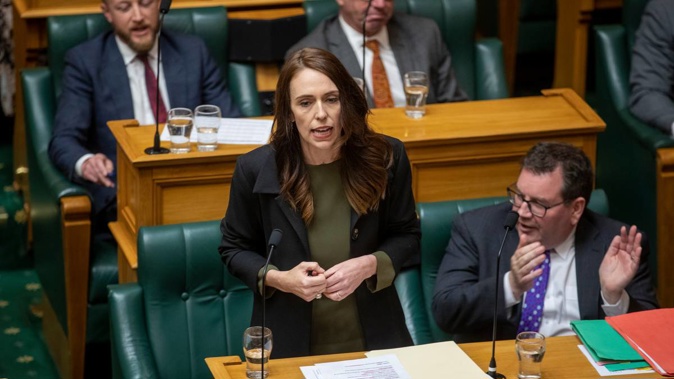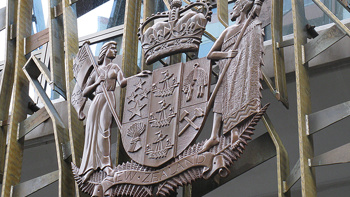
The Prime Minister and other politicians will not get a pay rise for the next three years, the Remuneration Authority has just revealed.
The Remuneration Authority has released MPs' pay rates for the next three years today - and decided to give them no increase at all, citing the economic conditions of Covid-19.
MPs' pay has now not moved since mid-2017.
The Prime Minister will remain on $471,049 a year and Leader of the Opposition Judith Collins on $296,007.
Ministers earn $217,676 and backbench and Opposition MPs are paid just under $164,000.
The Remuneration Authority said it had considered the economic conditions and decided they were unlikely to significantly improve over the three-year period it had to set the salaries for.
However, it said it there was a "marked change in the economy" it could make a change in the future.
The Remuneration Authority said it considered expert advice from a range of sources, including the Reserve Bank and Treasury.
"After taking into account the advice received regarding prospective changes in New Zealand's economic situation, the Authority could find no compelling evidence that pointed to when the economy might recover to pre-COVID levels, regardless of some recent good economic news."
It had therefore decided to keep MPs' salaries at the 2017 levels until the next election, but noted that a significant change in the economy could result in it re-visiting that.
A spokesperson for the Prime Minister said she had urgent restraint in a submission to the Remuneration Authority.
"She supported pay restraint and the independence of the Authority to make these decisions."
A six-month pay cut MPs took in solidarity with other workers during Covid-19 is still in place, but will end on January 6.
That was after a request from the Prime Minister - and backed by Opposition MPs - that saw ministers' pay cut by 20 per cent and normal MPs' by 10 per cent.
Despite the PM's plea for restraint, the Remuneration Authority has to weigh up other factors including maintaining relativity with the pay received by those in other professions, the demands of the job, and the economic conditions.
For the first time, the Remuneration Authority has had to set the salaries for each of the next three years until the next election, rather than making annual adjustments.
It had to start that process within three months of the election.
The change made by the Government helps spare the politicians their Christmas blushes when each year's announcement was made.
In 2018, the Prime Minister froze the pay rates for a year rather than take a 3.08 per cent increase calculated by the Remuneration Authority that year.
The Government then changed the formula that the Remuneration Authority used to work out salary changes, rescinding former Prime Minister John Key's 2014 decision to peg MPs' pay increases to the average pay rise in the wider public sector.
That was a bid to end big pay increases, which attracted public opprobrium, but ended up delivering healthier increases than expected.
Labour has now changed back to rules under which the Remuneration Authority has to take account of a range of issues, including the economic environment, and what people in other professions are paid.
The authority's most recent determination was signed off in June this year and applied retrospectively from June 2019 until the election – but did not change MPs' pay.
The Remuneration Authority noted Covid-19 was having an " immediate and unprecedented impact on the New Zealand economy" but said that was difficult to measure at that point.
It said it would not know the extent of the downturn New Zealand was facing until the labour market and economic indicators for the June 2020 quarter were published.
From 2014 to 2017, the pay increases had ranged from 2.5 to 4 percent.
By contrast, in the immediate aftermath of the Global Financial Crisis from 2011 to 2014, the increases were 1.7 per cent on average.
Take your Radio, Podcasts and Music with you









